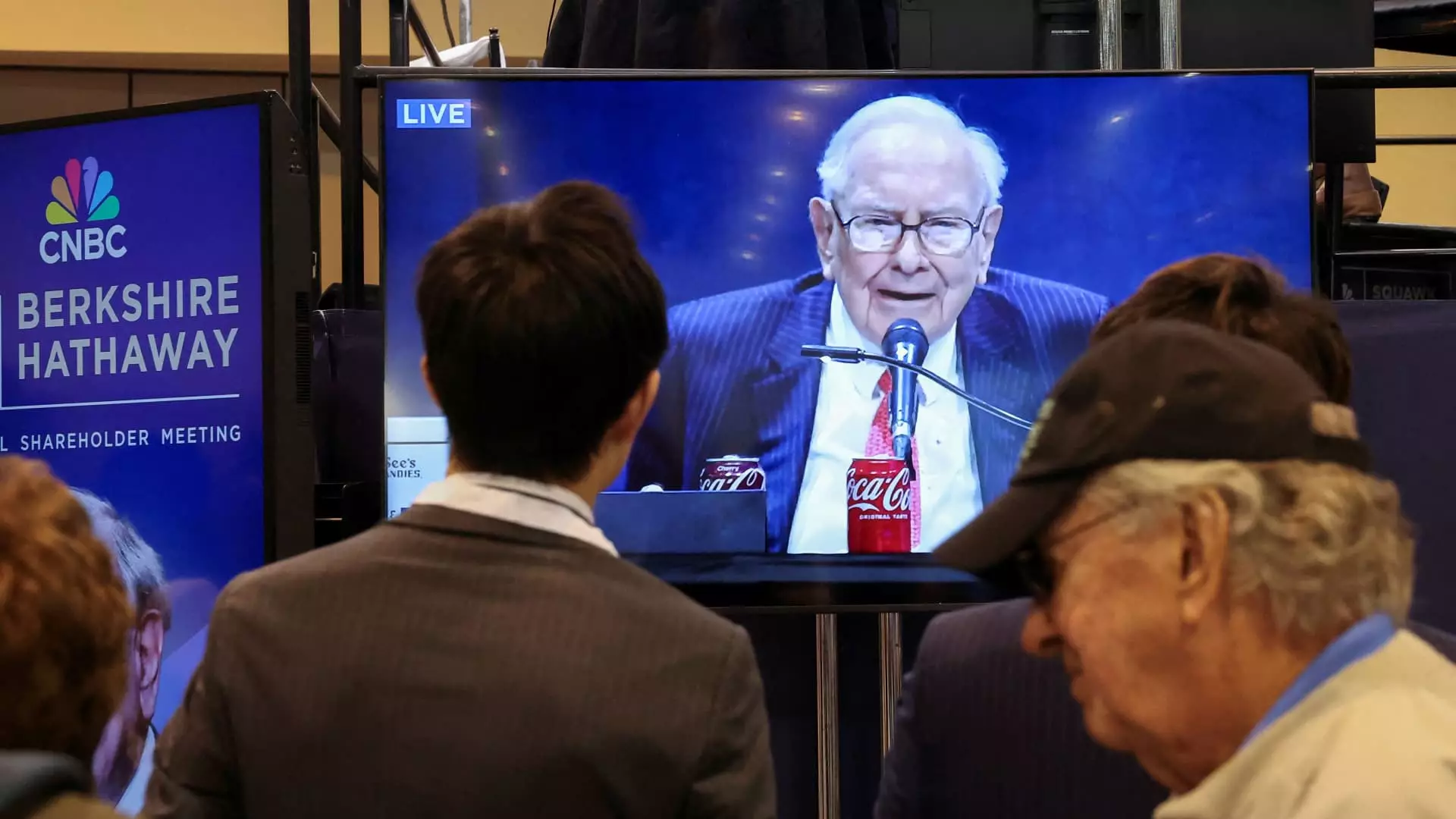Warren Buffett’s announcement regarding his forthcoming retirement might have sent shockwaves through the financial world, but anyone who has invested in Berkshire Hathaway over the past six decades knows this moment was inevitable. When Buffett, now 94, revealed during the company’s annual meeting that Greg Abel would succeed him as CEO, it marked not just a transition in leadership but a seismic shift in how we conceptualize corporate longevity. This was not just a surprise to shareholders but a critical juncture that allows for reflection on what made Berkshire a paragon of investment success under Buffett’s stewardship.
Berkshire Hathaway has blossomed from a failing textile manufacturer into a sprawling conglomerate with a market cap nearing $1.2 trillion. Despite this resounding success, we must now consider whether the company’s culture and investment strategies will endure after Buffett’s departure. Transitioning leadership is fraught with peril, no matter how prepared the new CEO might appear to be. The question looms large: Can Abel uphold the vibrant, risk-averse culture that Buffett fostered without losing the innovative spark that has driven growth?
Market Reactions and Investor Sentiment
On the heels of this announcement, Berkshire Hathaway’s Class B shares saw a decline of 2.9% in pre-market trading, following an impressive record high. Surprisingly, this kind of volatility is expected when a titan steps down. Investors, while likely willing to support this new chapter, might find themselves uneasy until they can fully assess how Abel’s leadership style diverges from Buffett’s.
Analysts have suggested that the operational landscape will remain largely unchanged, citing the strong cash flows endemic to Berkshire’s suite of businesses. Some investors like Macrae Sykes believe this transition is an opportunity for continued mentorship from Buffett, who will still retain a role as chairman. However, I argue that this may not be enough for average shareholders. The sentiment could be characterized as cautious optimism; customers and investors demand stability but are acutely aware that the commanding presence of Warren Buffett offered unparalleled assurance that a shift could result in unpredictable outcomes.
Emphasizing Strengths: Abel’s Approach to Leadership
Although Greg Abel is stepping into big shoes, it’s essential to acknowledge the strengths he brings to this role. Abel has navigated various sectors within Berkshire, gaining insights that could prove invaluable as he leads the firm. His ascension suggests a calculated plan already in motion, which may ease some of the anxieties surrounding Buffett’s absence. Abel’s understanding of both the businesses within the conglomerate and the surprisingly intricate insurance operations is an asset that cannot be easily dismissed, especially when uncertainties loom on the horizon due to challenges like the $1.1 billion loss attributed to adverse California wildfires.
Nonetheless, the stock market’s immediate reaction post-announcement indicates a fundamental fear of transition. Investors often feed off sentiment; if they aren’t swayed by rational thought, the perception of instability could ripple through the market, resulting in unnecessary losses. Maintaining good capital allocation practices within the company is critical during this transition phase.
Beyond Buffets: A Call for Innovation
While Buffett’s legacy will undoubtedly cast a long shadow, the future of Berkshire Hathaway offers an intriguing opportunity for innovation. The existing portfolio is robust, yet the market is hungry for new mechanisms and adaptations that speak to concerns over modern economies and changing consumer demands. This calls for agility that transcends the traditional model, aiming to showcase Berkshire not merely as a conglomerate but as a thought leader in navigating the complexities of today’s financial and social landscapes.
It’s clear that political and economic conditions are continuously evolving. The next chapter under Abel’s leadership could redefine what it means to be a stable investment in an increasingly volatile world. With a shift to center-right ideals within the corporate structure, Berkshire Hathaway may inspire a new generation of business leaders who are not only profit-driven but also socially responsible. This could ultimately forge a path toward a more sustainable type of capitalism that balances shareholder and societal interests.
As Berkshire Hathaway turns this new page, it serves as a poignant reminder that no leader is irreplaceable, and sometimes, it takes the unthinkable to push forward into uncharted territory.

